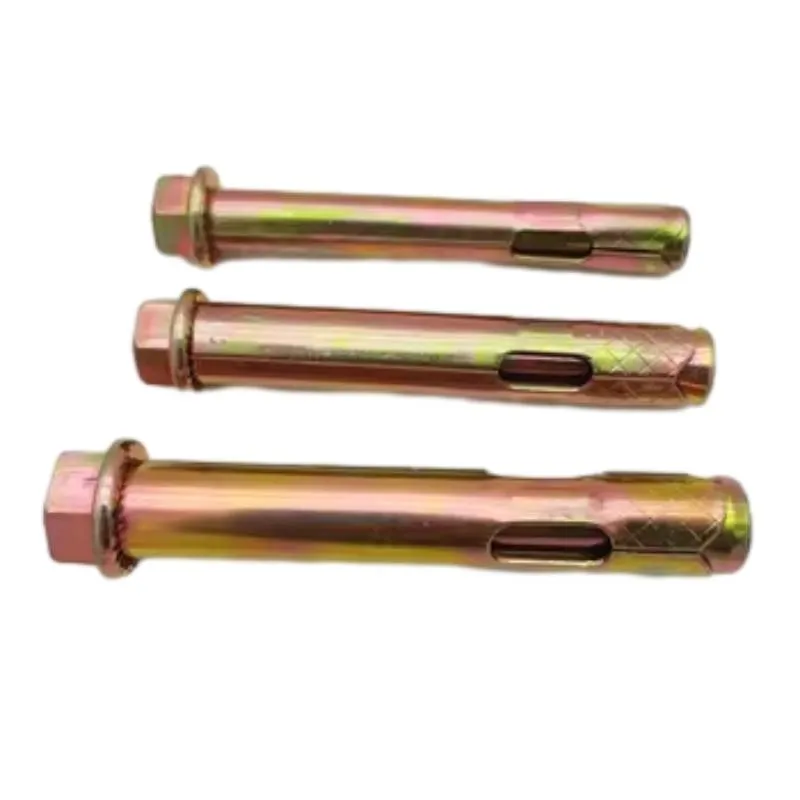Қар . 27, 2024 11:54 Back to list
Understanding Different Types of Bolts for Various Applications and Industries
Understanding Bolt Types A Comprehensive Guide
Bolts are essential fasteners used in various applications, ranging from construction to automotive industries. They are designed to hold objects together, providing stability and strength to structures. Understanding different bolt types is crucial for selecting the right one for specific projects. In this article, we will explore the various types of bolts, their applications, and the factors to consider when choosing the appropriate bolt type.
1. Hex Bolts
Hex bolts are among the most common types of bolts found in industrial applications. They are characterized by their six-sided head, which can easily be tightened or loosened using a wrench. Hex bolts come in various lengths and diameters, and they can be made from different materials, including steel, stainless steel, and alloy. They are widely used in construction, machinery, and automotive applications due to their high tensile strength.
2. Carriage Bolts
Carriage bolts are distinct for their round heads and square necks, designed to prevent the bolt from turning when tightened. This feature makes them ideal for fastening wood and materials that require a smooth surface finish. Carriage bolts are commonly used in furniture assembly, decking, and outdoor constructions. If aesthetics and stability are priorities, carriage bolts are an excellent choice.
3. Lag Bolts
Lag bolts, or lag screws, are heavy-duty fasteners designed for fastening wood to wood or wood to metal. They have a coarse thread that provides an exceptional grip, making them ideal for load-bearing applications such as decking, framing, and construction of wooden structures. Proper pre-drilling is often necessary to prevent the wood from splitting when inserting a lag bolt.
Shoulder bolts, also known as stripper bolts or locating bolts, feature a cylindrical shoulder that acts as a pivot point or a guide for parts in motion. They are frequently used in machinery and equipment assemblies, particularly when precise alignment is necessary. The shoulder provides added strength and stability, making shoulder bolts indispensable in many engineering applications.
5. Eye Bolts
bolt types

Eye bolts are characterized by a looped head that allows for the attachment of ropes, cables, or chains. They are commonly used in lifting and rigging applications, such as hoisting machinery or securing loads. Depending on the application, eye bolts can be forged or bent and are available in various sizes and materials. It's crucial to choose the right size and grade of eye bolt to ensure safety during lifting operations.
6. Set Screws
Set screws, or grub screws, are used primarily for securing objects in place without the use of a nut. These bolts are usually headless and are designed to be fully recessed, allowing them to fit into tight spaces. They are commonly found in machinery, tools, and equipment where a secure fit is essential. Understanding the appropriate length and thread type for set screws is critical for their effective application.
Choosing the Right Bolt Type
When selecting a bolt type, several factors must be considered
- Material Different materials offer various levels of strength, corrosion resistance, and durability. Stainless steel bolts, for example, are ideal for outdoor use due to their resistance to rust and corrosion. - Load Requirements The load-bearing capacity of a bolt is crucial in determining its suitability for an application. Heavy-duty applications may require bolts with higher tensile strength, such as hex bolts or lag bolts.
- Environmental Conditions Consider the environmental factors in which the bolt will be used. For instance, exposure to moisture or harsh chemicals may necessitate the use of corrosion-resistant materials.
- Ease of Installation and Maintenance Some bolt types, such as hex bolts, are easier to install and remove compared to others. Depending on the project requirements, this can be an important consideration.
Conclusion
In conclusion, understanding bolt types is vital for selecting the right fasteners for specific applications. Each type of bolt has unique features and applications that cater to different needs, from construction to machinery assembly. By considering factors such as material, load requirements, environmental conditions, and ease of installation, individuals and professionals alike can effectively choose the appropriate bolt type for their projects. Proper selection ensures not only structural integrity but also the longevity of the assemblies in which these fasteners are used.


